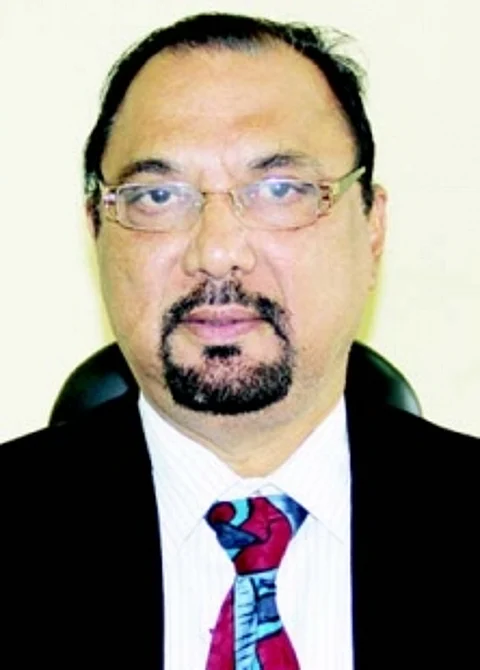

Corruption and the exploitation of natural resources are intertwined issues that have plagued societies across the globe. The quest for wealth and power often leads to unethical practices that not only deplete the Earth’s precious resources but also perpetuate a cycle of poverty and inequality.
The elected representatives are expected to direct their actions for beneficial use of natural resources, any activity dehors this is corruption. One common manifestation of corruption is the misappropriation of revenues generated from natural resource extraction. Funds that should contribute to public welfare, education and healthcare often end up in lining the pockets of corrupt officials.
The impact of corruption in natural resource-rich areas is felt most acutely by local communities. The exploitation of resources can lead to displacement of populations and environmental degradation. Often, marginalised communities are left to bear the brunt of the ecological consequences, resulting in the loss of livelihoods and cultural disintegration
Natural resources represent an essential part of the wealth of a country and should be managed sustainably to determine long-term economic development (World Bank, 2011). Since they are depletable, the responsibility is much greater on the elected representatives in their preservation as well as exploitation. Unfortunately, natural resources often provide a fertile ground for corruption.
The basic relationship between corruption and natural resources is two-fold. Firstly, the presence of natural resources may cause corruption mainly because of the government’s unwillingness to measure and estimate the exact quantum of such resources, existing and removable. Therefore, the determination of any fees or cess, etc, leads to large discretion or grey areas in the processes leading to corruption in the natural resource management (NRM) systems, themselves leading to the State not receiving the
appropriate share for human or other developments.
Secondly, the casual and often unscientific and mismanagement of natural resources has created a conducive environment for corruption at all levels of natural resource management, so much so that there is an umbilical link between corruption and exploitation of natural resources. There are many research findings that natural resource breeds corruption, which, in turn, lowers the economic performance.
There is a growing body of evidence that natural resources can be a curse rather than a blessing. Often called the ‘resource curse’ leading to not only depletion of the resources but irreparable environmental damage, and the State receiving much less benefits than its due as a direct consequence of the corrupt practices linked to exploitation of natural resources.
Natural resource sectors, including minerals, oil and gas, water, fisheries, forestry and wildlife, are highly vulnerable to corruption due to significant revenues generated by resource exploitation, management and trade. Exposure to corruption is increased by the ‘gate-keeping’ function performed by governments. Paradoxically, in many cases this wealth of resources has had an adverse impact on the whole development process, referred to as ‘the resource curse’, a paradoxical phenomenon.
Preventing corruption in the exploitation and use of natural resources need strong, vibrant and effective democratic institutions to govern, regulate and prevent corruption. The extent of corruption depends on the quality of the democratic institutions.
There are some ‘good’ politicians (very few) who primarily care about society’s welfare and many more ‘bad’ politicians who primarily care about the wealth they can generate for themselves by corrupt activities. The people prefer to have a good politician. This provides an incentive for a bad politician to mimic as a good politician, so that he can remain in power, often by misusing or rendering ineffective democratic institutions.
Raw material extraction and processing always impact the environment, resulting as they do in soil degradation, water shortages, biodiversity loss, damage to ecosystem functions and global warming exacerbation. To maintain a minimum environmental equilibrium there is need to balance the extend of degradation with additional or alternative income source for the people and much better facilities, which the States fail to provide. As evidenced almost everywhere in India, where ever natural resources are extracted, lack of proper roads, water, hospitals and employments avenues to the resident population are common local issues of concern, though levies are made for such improvements.
Various studies suggests that resource abundance increases corruption in countries with poor democratic institutions, which in turn lowers growth. Resource windfalls encourage the government to engage in corrupt practices.
Mechanisms to check the government’s functionaries are carried out by institutions like the vigilance commissions, Human Rights Commission, Right to Information Commission, etc, and therefore they need to be democratically strong to identify and rectify corrupt practices and the loss of revenue to the State. Politicalisation and political appointments to these bodies only breeds corruption.
With the prevailing system of governance, with suppression of these safety systems, corruption has become more and more sublime, so much so that those who indulge in corruption, are able to successfully keep up a façade of honesty and people’s welfare in their day-to-day public discourses, thus misguiding the public as to their true intentions and purposes of being in power. If actions and policies are subjected to a simple test of ‘the extend of natural resources removed and the proportionate benefits and facilities to the community’, one can realise the huge chasm and the ever-widening gaps.
Corruption in India is because of opaque bureaucracy, discretionary powers and monopoly of government-controlled institutions. The resource curse is a continuing challenge with the high level of corruption, and where existing institutions are weakened. Corruption within natural resource management systems involves a variety of different actors, where enforcement requires total political honesty and transparency.
Environmental problems such as air, land and water pollution; disruption or destruction of ecosystems; and a decrease in biodiversity cannot be handled without a comprehensive and long-lasting policy involving people’s participation at every level, as politicians can no more be trusted as trustees of goodwill and wellbeing of the people.
(The writer is a Professor of law and an Education Consultant)